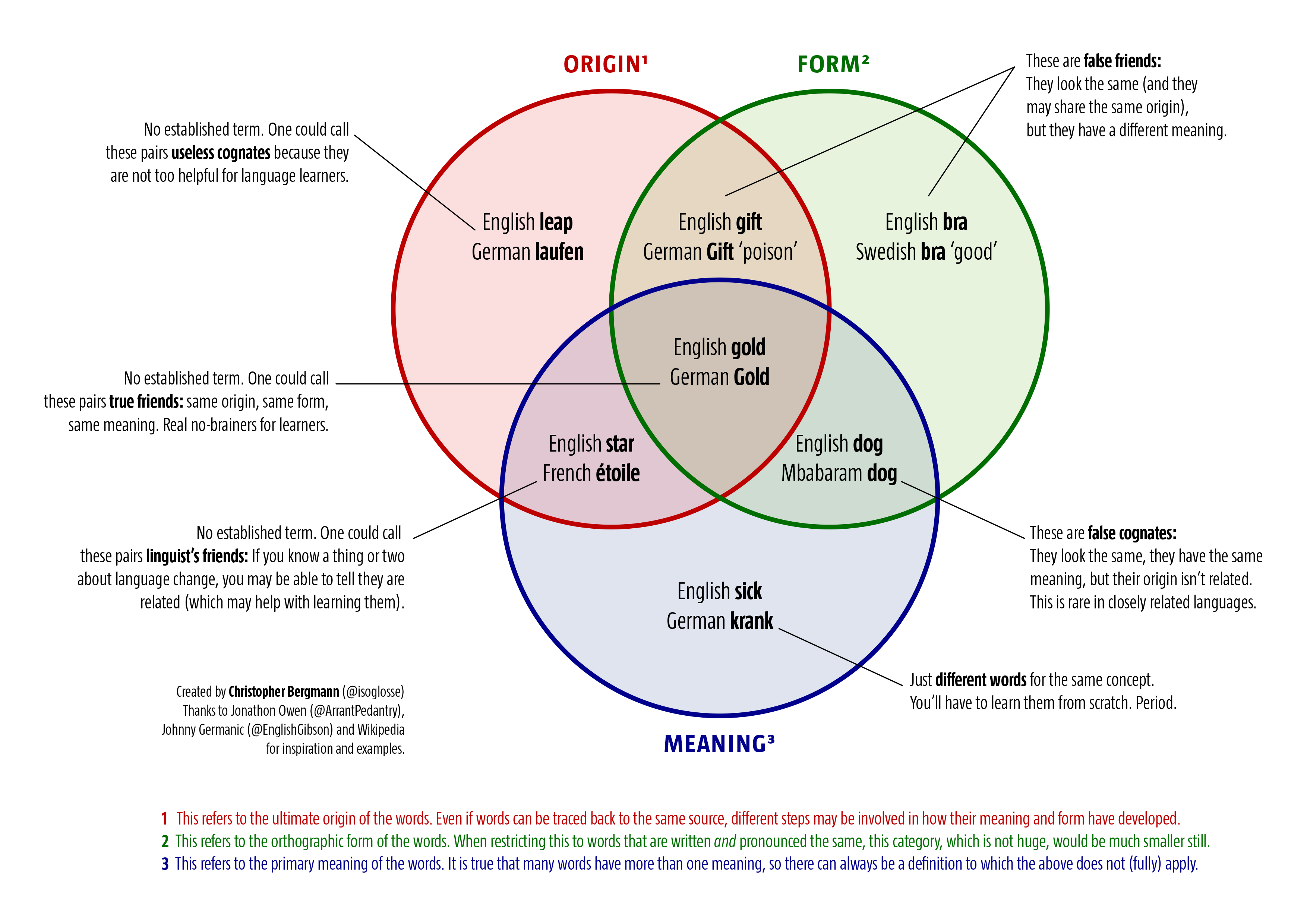Learning a language is hard, so every little bit helps: If English is your mother tongue and you start learning German, you will be delighted to hear that the German word for hand is Hand. You may be less delighted to hear that the English word gift does not translate to its German orthographic counterpart Gift (which means ‘poison’), but to Geschenk. Then again, if you like linguistics, you will be delighted to hear that not just the former, but also the latter pair of words is etymologically related (both gift in English and Gift in German refer to something that is given to someone, the verb give also being related to the nouns). So, we have three aspects of relatedness in words: the origin (where words come from); the form (how they are written); the meaning (how we define them). For some clusters of relatedness, there are established terms: The term I have always used for words that share the same spelling, but not the same meaning is ‘false friends’ (e.g., gift/Gift). Today I learned through a blog post by Jonathon Owen that some English speakers (erroneously) refer to such false friends as ‘false cognates’ – a term that would properly be applied to words that share the same meaning and the same form across languages, but that are in fact etymologically unrelated. Inspired by said blog post, I made an overview of different types of relations between word pairs across languages, based on origin, form, meaning or some combination thereof. You can download a PDF version of the chart by clicking on the image below:

I am writing my MA thesis on this (and related topics)! Maybe I could use this (if you would give me your permission, of course)?
I’d love to see this used in your MA thesis. Feel free to use it (with attribution) – and please let the world know once you’ve finished your thesis. Best of luck with it!